"How to integrate the Patient eXperience into non-face-to-face activity such as telemedicine?"
20.10.2020 | 16h (CET)
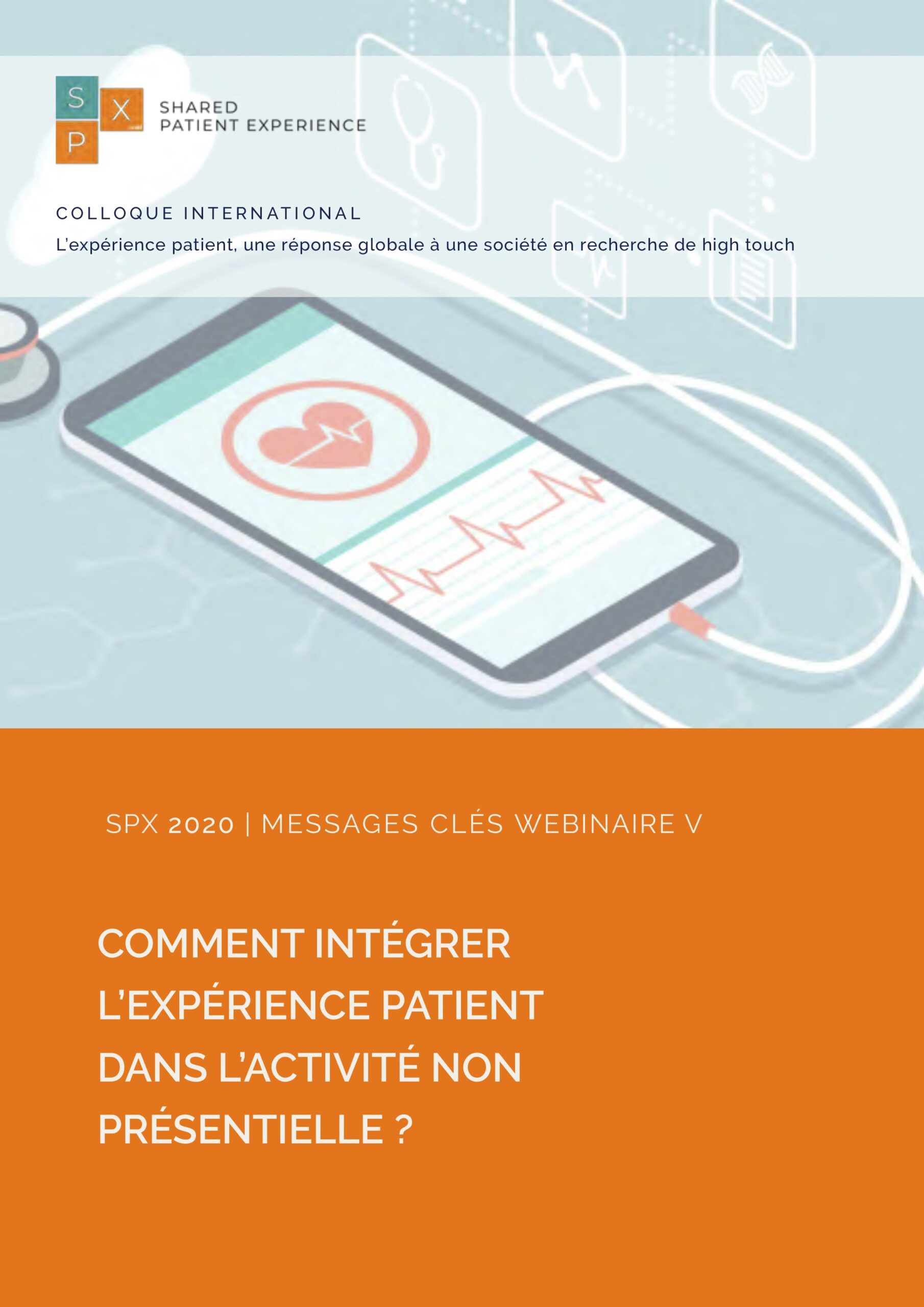
How to integrate the Patient eXperience into non-face-to-face activity such as telemedicine?
Description: This document, presents the key messages as well as the opinions of the experts who participated in the webinar. It addressed “How to integrate the patient experience into the non-presential activity”. It was sponsored by the CHC group in Liege, Belgium.
Send download link to:
The technology necessary for non-face-to-face provision of healthcare is available, but its integration and usability is not yet widespread. During the pandemic, telemedicine with the support of numerous companies and start-ups traversed administrative barriers to quickly establish their use and become the essential model in providing care to patients. In this context characterized by uncertainty and complexity, we could not reflect on how to ensure empathy and the patient experience with the use of these technologies. How to integrate the patient experience into the design of the programs, instruments and care provided by telemedicine?
SPEAKERS
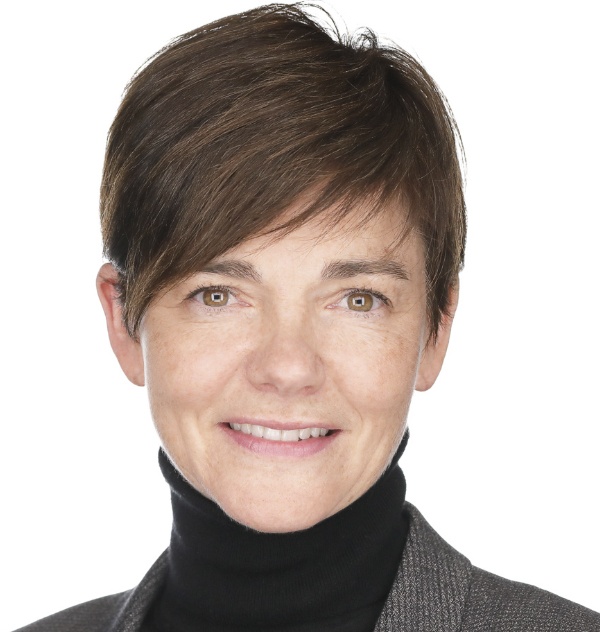
Mrs. Carole MATZINGER
Managing Director at Soignez-moi.ch
After graduating from HEC Lausanne, followed by a Master’s degree in International Management, Carole worked for Swisscargo, Swissair’s freight subsidiary, as VP in charge of optimisation. Following the bankruptcy of the SAir Group, she chose to redirect her career towards the health sector by obtaining a Master’s degree in Health Management and Economics. She then took over the management of a dental clinic in serious financial difficulties in the Zurich area. After successfully restructuring it, she went on to set up another clinic in Fribourg. Carole joined the CHUV in 2006 as administrative director in charge of a department with 700 employees and an annual budget of 120 million. In 2012, she will leave the CHUV to take over the position of CEO of Euromedic Switzerland, a society managing 8 radiology centres in Switzerland. In May 2016, she founded Corpus Health with the aim of setting up innovative projects in the healthcare sector. As part of these projects, Corpus Health is launching sojourn-moi.ch in French-speaking Switzerland in October 2019.
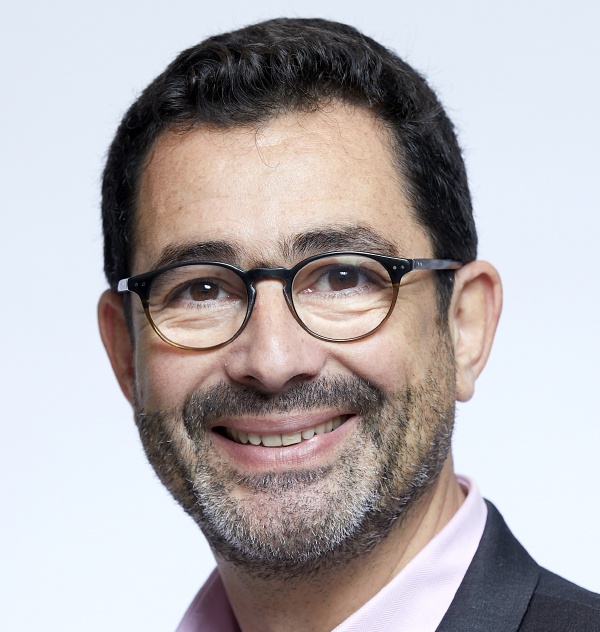
Prof. Gilles KEMOUN
Professor of Physical Medicine and Rehabilitation, University of Poitiers.
Professor Gilles Kemoun is a Specialist in Physical and Rehabilitation Medicine, former head of department at the Poitiers University Hospital. He has also been President of the Institute for Research on Disability and Ageing (ISIS) since 2003 and since 2012 co-president of the scientific council of the Association for the Promotion of New Technologies for People with Disabilities (APPROACH). In addition to his clinical activities, he is involved in numerous studies on the organisation of health and personalised care pathways, the development of patient services and technological and digital innovations. Since 2013, he has been working with the Elsan group, the second largest private group of clinics, on care pathways, technological innovations and research. In 2014, he co-founded Neuradom, a start-up company that offers an integrated platform for remote rehabilitation in the living environment, based on innovative digital technologies and interaction with therapists.
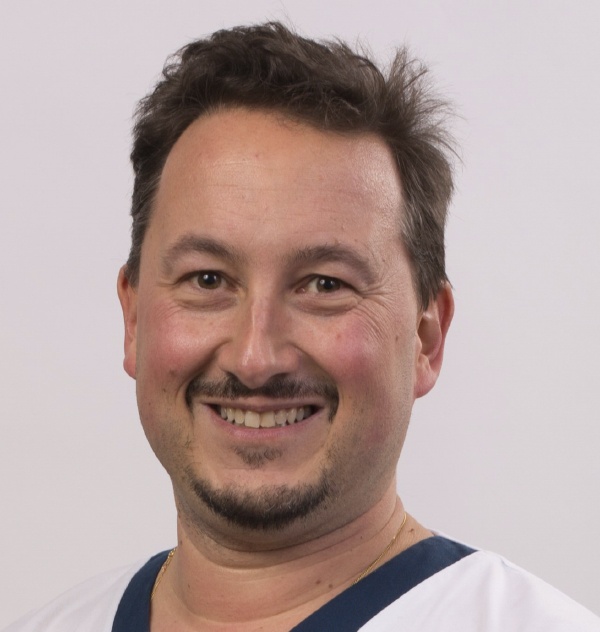
Dr. Philippe DEVOS
Deputy Head of Unit, Anaesthetist, Intensivist Physician.
Dr. Philippe Devos is Head of the Intensive Care Department of the CHC of Liège (since 2014) and Associate Head of Anaesthesia (since 2015). At the management level, Philippe Devos has also developed the department towards a participative/bottom-up management type, oriented towards innovation and lean (a management method that aims to improve the company’s performance by developing all employees: Editor’s note). Dr Devos joined the Medical Council of his hospital 8 years ago and has been its chairman since 2016. For 11 years, Dr Devos has been involved in professional defence, via Absym, the Belgian Association for Medical Unions, of which he has been president since 2019. Dr. Devos is particularly sensitive to the support of families in intensive care, especially in moving from a “doctor-centred care” to a “family-centred care” service. For years he has campaigned to humanise the practice of all carers in intensive care.
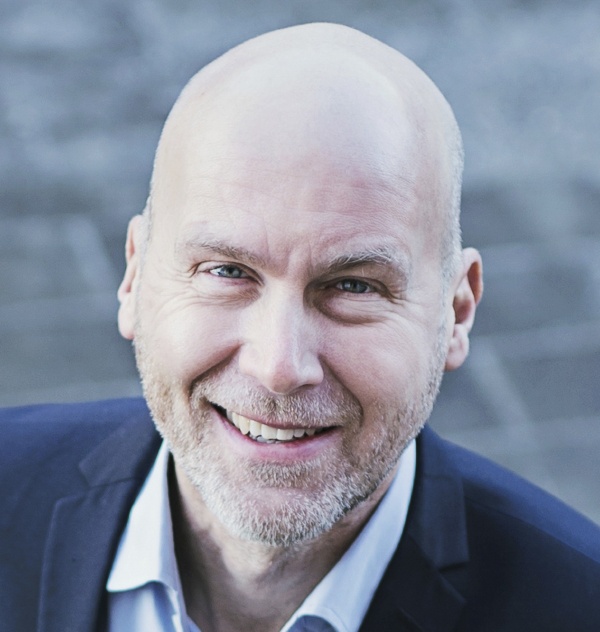
Prof. Kristian KIDHOLM
Professor of innovation, HU Odense, Denmark.
Kristian Kidholm is Professor of Innovation at Odense University Hospital (OUH) and one of Scandinavia’s leading experts on evaluating the value of health technology. He is Head of Research at CIMT and in charge of Health Technology Assessment (HTA) at OUH, which provides the hospital management with a research-based foundation for deciding whether a new form of treatment or technology should be made part of OUH’s service for patients. He developed the MAST (Telemedicine Assessment Model), which is used as a framework to assess the value of telemedicine. Today, the model is the most widely used telemedicine assessment model in Europe and the MAST model is recommended by the European Commission to ensure a comprehensive and research-based assessment of telemedicine in the health sector. The model is based on 7 dimensions, of which 3 are related to the patient and his experience: the patient and technology, patient safety, the patient’s perspective.
*Prof Kristian Kidholm will participate with a video presentation, but will not be able to actively participate during the webinar.
VIDEO PRESENTATIONS
Mrs. Carole MATZINGER
Managing Director at Soignez-moi.ch
Prof. Gilles KEMOUN
Professor of Physical Medicine and Rehabilitation, University of Poitiers.
Dr. Philippe DEVOS
Deputy Head of Unit, Anaesthetist, Intensivist Physician.
Prof. Kristian KIDHOLM
Professor of innovation, HU Odense, Denmark.
PANNEL DISCUSSION
Technologies needed for health care delivery outside of face-to-face care are available, but their integration and adaptability to everyday use is not yet widespread. During the pandemic, telemedicine, with the support of many actors, including companies and start-ups, has overcome administrative barriers to establish itself and become a key model in the provision of patient care. In this context characterised by uncertainty and complexity, we have not been able to reflect on how to ensure patients’ empathy and experience with the use of these technologies. How can patient experience be integrated into the design of programmes, instruments and care provided by telemedicine?
